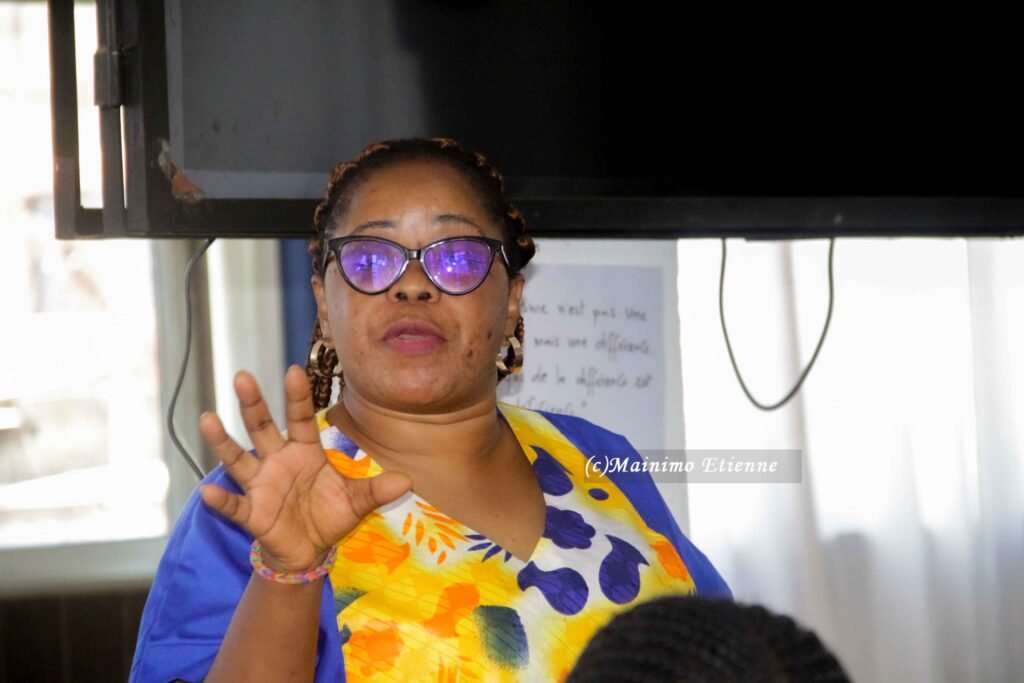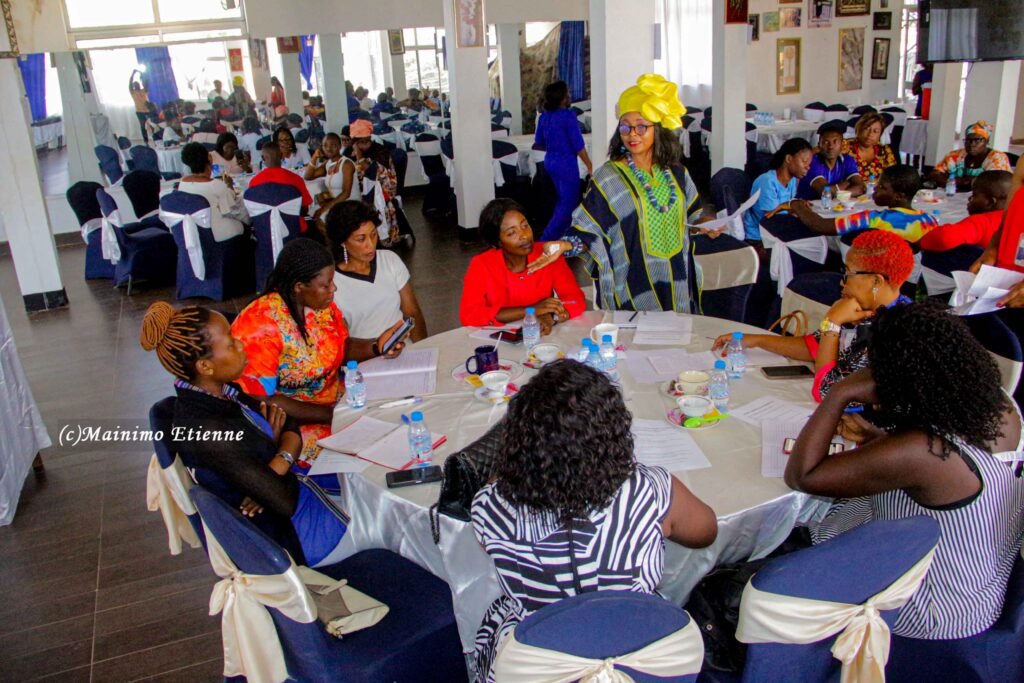By Etienne Mainimo Mengnjo
Timely Performance Care Center (TPCC) and parents, alongside guardians, have agreed that bridging the communication gap for children living with autism is important.
Participants during the Workshop (Photo Credit: Mainimo Etienne)
This was the focus of a one-day workshop organized by TPCC on Saturday, April 20. The workshop aimed to raise awareness about autism in commemoration of Autism Awareness Month.
Participants at the workshop emphasized the importance of societal acceptance for children living with autism, highlighting the need for parents and families to first accept and treat these children equally.
During an interactive presentation, Betty Nancy Fonyuy, Managing Director of TPCC, delved into the topic of unlocking communication (using code language for children with autism). She stressed the significance of understanding how to communicate effectively with these children, as parents, caretakers, and guardians often feel frustrated due to a lack of guidance.

Fonyuy explained that employing coded language can help reduce anxiety, enhance understanding, and improve engagement. Techniques such as using visuals, gestures, and predictable language can increase a child’s motivation to engage in communication.
While participants acknowledged that code language communication might not be a universal solution for all children with autism, they recognized that many children can benefit from learning more advanced communication skills, such as using Augmentative and Alternative Communication (AAC) devices or developing spoken language.
Fonyuy highlighted the importance of tailoring the code language to each child’s specific needs, interests, and communication level. She emphasized the need for consistency in using the code language across all environments and rewarding desired behaviors associated with the code language.
Participants unanimously agreed that code language can serve as a powerful tool to enhance communication and social interaction for children with autism. By implementing these strategies consistently and collaboratively, they believe it can empower children with autism to achieve their full potential.

Throughout the workshop, participants shared their experiences, with many emphasizing the significance of bridging the communication gap to better understand and guide children living with autism.
In the words of Collete Kana, a workshop participant, “Parents with children with disabilities should not isolate them at home but should send them to school… Love and treat them well because they are exceptional children.”
World Autism Awareness Day is observed internationally on 2 April, encouraging Member States of the United Nations to raise awareness about individuals with autism worldwide.
April is recognized as World Autism Month, with World Autism Day being one of the seven official health-specific UN Days established in 2007.
